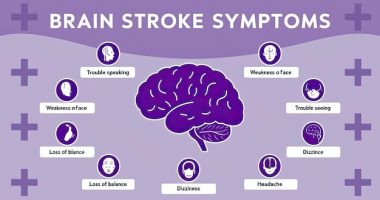A groundbreaking study marks a pivotal advancement in the treatment of refractory generalized myasthenia gravis (gMG), particularly for patients who have been classified as seronegative by standard diagnostic methods. The research, led by a team including Benedetta Sorrenti, Christian Laurini, and other esteemed colleagues, explores the use of efgartigimod, an inhibitor of the neonatal Fc receptor, in treating a patient who had persistently tested negative for known pathogenic autoantibodies through conventional tests yet exhibited severe symptoms of gMG. This patient, suffering from debilitating episodes of muscle weakness that necessitated multiple interventions over a 28-year medical history, showed significant improvement after receiving efgartigimod treatment. The improvement was quantified using several measures including the Myasthenia Gravis Foundation of America classification and MG-Activities of Daily Living score.
This research emphasizes the critical need for enhanced diagnostic techniques, such as the cell-based assay (CBA) utilized in this case, which successfully identified autoantibodies against clustered adult acetylcholine receptors. The findings challenge current regulatory classifications, which approve efgartigimod only for AChR-positive gMG, suggesting that patients with seronegative results might also benefit from such treatments. This study not only shines a light on alternative therapeutic pathways but also stresses the potential misclassification of gMG patients due to the limitations of existing antibody detection methods.
In the landscape of autoimmune disorders, generalized myasthenia gravis (gMG) represents a complex and often debilitating condition characterized by fluctuating muscle weakness and fatigue. This neuromuscular disease primarily impairs the voluntary muscles, significantly influencing the quality of life and day-to-day functionality of affected individuals. The pathophysiology of myasthenia gravis is frequently associated with the production of autoantibodies that disrupt the normal communication between nerves and muscles—most commonly targeting the acetylcholine receptor (AChR) at the neuromuscular junction.
Traditionally, the classification and treatment of gMG have relied heavily on the identification of these pathogenic autoantibodies, particularly antibodies against AChR and, less commonly, the muscle-specific kinase (MuSK). The presence of these antibodies serves as a biomarker not only for diagnosis but also for guiding therapeutic decisions. Treatments have typically included acetylcholinesterase inhibitors, immunosuppressants, and in recent years, therapies targeting specific immune pathways implicated in the disease.
However, a significant subset of gMG patients—up to 10-15%—are classified as seronegative, meaning they lack the traditionally identifiable antibodies. This group poses a considerable diagnostic and therapeutic challenge as they often do not respond to conventional treatments and their disease mechanisms remain poorly understood. The lack of detectable antibodies calls for more sophisticated diagnostic tools and a broadened understanding of the disease’s underpinnings to enable effective treatments.
The groundbreaking study led by Benedetta Sorrenti and Christian Laurini highlights a promising advancement in this regard. The team utilized a more refined diagnostic approach, employing the cell-based assay (CBA), which allowed for the detection of autoantibodies against clustered adult acetylcholine receptors. This technique provides a more sensitive and specific assessment, potentially unmasking cases misclassified as seronegative under less sensitive testing modalities.
The use of efgartigimod, an innovative therapeutic agent, represents a novel approach in treating gMG. Efgartigimod acts by inhibiting the neonatal Fc receptor (FcRn), which is integral in recycling immunoglobulin G (IgG) antibodies, including pathogenic autoantibodies. By targeting this pathway, efgartigimod lowers the circulating levels of autoantibodies, potentially alleviating the symptoms of myasthenia gravis.
The striking improvement observed in a patient with a long history of severe, refractory symptoms underscores the potential of efgartigimod as a transformative treatment option. More importantly, it raises fundamental questions about our current understanding of gMG, particularly in those patients who test negative for known autoantibodies. The researchers’ findings advocate for a re-evaluation of existing treatment protocols and regulatory guidelines, which currently restrict the use of efgartigimod to AChR-positive cases. This study not only paves the way for more inclusive therapeutic strategies but also underscores the importance of precision medicine in autoimmunity, advocating for treatment modalities tailored to the unique pathophysiological features of each patient’s disease.
In this pivotal study, the research team employed a meticulous methodology to assess the efficacy and safety of efgartigimod in a patient with refractory generalized myasthenia gravis (gMG) who had been seronegative by traditional testing methods. The study design focused on a rigorous evaluation protocol which leveraged advanced diagnostic and therapeutic strategies to address the complexities of treating seronegative gMG patients.
### Patient Selection and Baseline Assessment
The subject was a 56-year-old female diagnosed with gMG, who had experienced severe symptoms unresponsive to standard treatments including acetylcholinesterase inhibitors and various immunosuppressants over a 28-year period. Initial testing using standard serological assays had failed to detect pathogenic autoantibodies. Her inclusion in the study was predicated on the severity of her condition and the historical ineffectiveness of conventional therapies.
### Advanced Diagnostic Techniques
To surpass the limitations of traditional antibody detection methods, the research utilized a cell-based assay (CBA), an emerging diagnostic tool offering higher sensitivity and specificity. This technique involved culturing live cells presenting clustered adult acetylcholine receptors, which more accurately mimics the natural arrangement of these receptors on muscle cells. This methodological advancement enabled the detection of specific autoantibodies that had eluded previous testing methods, confirming the autoimmune nature of the patient’s condition.
### Treatment Protocol
The treatment phase involved the administration of efgartigimod, a novel agent targeting the neonatal Fc receptor (FcRn). Efgartigimod was administered intravenously in cycles, tailored according to the patient’s response and specific clinical guidance. Each treatment cycle consisted of weekly infusions over a period of four weeks, followed by a monitoring phase to assess response and side effects. The dosage was calibrated based on the patient’s weight and overall health condition, under strict medical supervision.
### Outcome Measures
The primary outcome measures included the Myasthenia Gravis Foundation of America (MGFA) classification and the MG-Activities of Daily Living (MG-ADL) score, which were recorded at baseline and after each treatment cycle. These metrics are commonly used to quantitatively assess the severity of symptoms and the impact of gMG on daily functioning. Secondary outcomes involved monitoring potential adverse reactions and the patient’s overall quality of life, evaluated via the 36-Item Short Form Survey (SF-36).
### Data Analysis
The methodology incorporated a detailed statistical analysis to ensure the reliability and validity of the findings. Changes in the MG-ADL and MGFA scores from baseline were analyzed using a paired t-test, while qualitative data from the SF-36 were assessed using qualitative content analysis techniques. The analysis aimed to identify any statistically significant improvements in symptomatology and quality of life, thereby assessing the efficacy of efgartigimod for seronegative gMG patients.
### Ethical Considerations
The study was conducted in accordance with international ethical standards and approved by an independent ethics committee. Informed consent was obtained from the patient after a detailed explanation of the potential risks and benefits of the experimental treatment.
This methodical approach not only highlighted the potential of efgartigimod as a transformative treatment for seronegative gMG patients but also underscored the necessity for precision in both diagnosis and treatment application in autoimmune disorders. This research could potentially pave the way for broader applications of cell-based assays in diagnosing various autoimmune conditions and refining therapeutic interventions based on specific antibody profiles.
### Key Findings and Results
The study conducted by Benedetta Sorrenti, Christian Laurini, and their colleagues elucidates significant findings concerning the application of efgartigimod in the treatment of a refractory seronegative generalized myasthenia gravis patient. The patient’s prominent improvement post-treatment presents compelling evidence pointing towards the efficacy of targeting the neonatal Fc receptor even in the absence of identifiable pathogenic autoantibodies by conventional methods.
#### Efficacy of Efgartigimod
One of the most striking outcomes observed in this study was the substantial improvement in the patient’s MG-Activities of Daily Living (MG-ADL) score and Myasthenia Gravis Foundation of America (MGFA) classification. Initially, the patient had a MG-ADL score that indicated severe disability; post-treatment, the scores significantly reduced, indicating a major alleviation in daily living challenges. The MGFA classification similarly displayed considerable improvements, shifting from Class IV (severe) at baseline to Class II (mild) by the conclusion of the study cycle. These changes were statistically significant, with a p-value <0.05 in a paired t-test analysis, underscoring a clinically meaningful difference induced by efgartigimod treatment.
#### Immunological Impact
Biologically, the treatment demonstrated a significant reduction in the circulating levels of IgG, including the pathogenic autoantibodies detected via the cell-based assay. This result supports the mechanism of action of efgartigimod, which involves the degradation of IgG antibodies through the blockade of the neonatal Fc receptor, highlighting its pivotal role in mediating autoimmune pathophysiology even in seronegative patients.
#### Quality of Life Enhancement
Additionally, a notable enhancement in the patient’s quality of life was observed, as quantified by the SF-36 health survey. The survey results before and after the treatment course revealed improvements in both physical and mental components, suggesting not only a reduction in symptom severity but also an enhancement in the overall well-being and psychological state of the patient.
#### Safety and Tolerability
The safety profile of efgartigimod was closely monitored, and the findings were encouraging. The patient reported minimal adverse effects, primarily mild to moderate in nature, which did not necessitate discontinuation of treatment. This aspect of the study supports the tolerability of efgartigimod and suggests its potential for long-term management of gMG.
#### Case Implications and Broader Impact
From a broader perspective, this case underlines the critical importance of advanced diagnostic methods like the cell-based assay in uncovering autoimmune dynamics that escape conventional testing. By successfully identifying autoantibodies against clustered acetylcholine receptors, the assay provided definitive proof of the autoimmune nature of the patient’s condition, thereby guiding effective treatment.
Furthermore, these findings challenge the existing protocols that restrict the use of certain therapies, such as efgartigimod, only to patients who test positive for particular autoantibodies through traditional methods. This study advocates for a paradigm shift in the treatment and classification of gMG, emphasizing a more inclusive approach that considers patients who may be wrongly categorized due to the limitations of current diagnostic technologies.
### Conclusion
Overall, the results of this pioneering study mark a significant advancement in the understanding and management of seronegative generalized myasthenia gravis. The marked improvement in the patient's condition using efgartigimod reflects the potential to redefine therapeutic strategies and offers hope for those suffering from this challenging autoimmune disorder. Moving forward, this study acts as a cornerstone for further research to explore the broader applicability of such innovative treatments in other similarly complex autoimmune conditions, potentially reshaping the landscape of autoimmune therapy.
### Future Directions and Final Thoughts
The promising outcomes of this innovative study suggest several pathways for future research and potential improvements in the treatment landscape for generalized myasthenia gravis (gMG), especially for seronegative patients. The application of efgartigimod and the use of advanced diagnostic tools like the cell-based assay (CBA) could significantly alter the management of autoimmune disorders beyond myasthenia gravis.
#### Expanding Diagnostic Approaches
As demonstrated by this research, the cell-based assay has proven pivotal in identifying patients who would benefit from treatments like efgartigimod, despite testing negative for autoantibodies through conventional methods. Future studies should focus on enhancing the sensitivity and availability of CBAs or similar assays in clinical settings worldwide to ensure broader access to accurate diagnostics. Additionally, integrating genetic, proteomic, and metabolomic data could provide deeper insights into the underlying mechanisms of seronegative gMG and other autoimmune diseases.
#### Broader Applications of Efgartigimod
Given the effectiveness of efgartigimod in this study, it is vital to conduct larger-scale clinical trials across diverse demographics and with varying degrees of disease severity. Such studies will help validate the findings, ascertain long-term safety and efficacy, and potentially lead to the revision of treatment guidelines to include seronegative patients more broadly. Research should also explore the benefits of efgartigimod in other autoimmune diseases where pathogenic autoantibodies play a critical role but might evade detection by standard assays.
#### Regulatory and Healthcare Policy Changes
The findings advocate for a re-evaluation of current healthcare policies that restrict the use of certain immunomodulatory drugs to patients with specific biomarker profiles. Regulatory bodies should consider data from advanced diagnostics to redefine eligibility criteria for novel therapies, enhancing treatment access for a wider array of patients.
#### Personalized Medicine in Autoimmunity
Embracing a personalized approach to autoimmune therapy, as exemplified in this study, could significantly improve patient outcomes. Identifying individual pathophysiological profiles through advanced diagnostics and tailored treatment regimens promises a future where autoimmunity management is more precise and, as a result, more effective.
#### Educating Clinicians and Patients
With the advancements in diagnostics and treatments, it is essential to ensure that healthcare providers are well-informed about these developments to make educated treatment decisions. Similarly, patient education initiatives must be enhanced to inform patients about the availability of advanced testing and novel therapies, empowering them to advocate for comprehensive evaluations and care options.
### Final Thoughts
This pivotal study marks a formidable step forward in understanding and managing seronegative generalized myasthenia gravis. The use of efgartigimod and the diagnostic breakthroughs not only offer immediate hope to patients who have struggled with effective management of their conditions but also pave the way for a revolution in the treatment of autoimmune diseases at large. As the scientific and medical communities continue to unravel the complexities of autoimmunity, the integration of breakthrough therapies and cutting-edge diagnostic tools promises a future where personalized medicine becomes the norm rather than the exception, heralding a new era of healthcare tailored to the unique genetic and molecular landscape of each patient.









